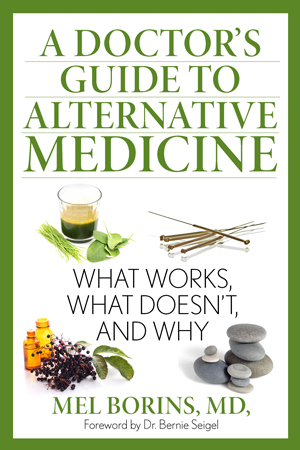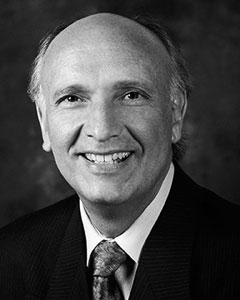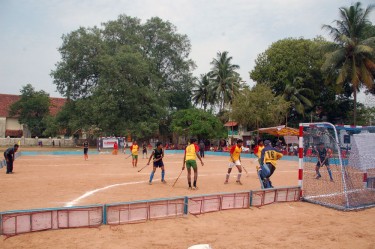Exercise For Depression – from my book “A Doctor’s Guide to Alternative Medicine: What Works, What Doesn’t, and Why – Foreword by Dr. Bernie Siegel”
You can order ‘A Doctor’s Guide to Alternative Medicine’ from melborins.com or Indigo.ca.
 Depression is one of the most common problems I treat in clinical practice. Even though drug therapy and psychotherapy is effective at alleviating symptoms much depression remains undiagnosed and inadequately treated. Sometimes patients refuse to take medications. Oftentimes combining psychotherapy, medication and other treatment modalities give better results.
Depression is one of the most common problems I treat in clinical practice. Even though drug therapy and psychotherapy is effective at alleviating symptoms much depression remains undiagnosed and inadequately treated. Sometimes patients refuse to take medications. Oftentimes combining psychotherapy, medication and other treatment modalities give better results.
HOW IT WORKS
Exercise may have biochemical affects via release of endorphins and other neurotransmitters. Often exercise is done in groups or with a trainer and the social contact may be critical. If the exercise is done outside or in an area other than the person’s own home the very act of getting out and doing something may be therapeutic. Exercise also acts as a diversion for negative thinking and helps to take the patient out of the helpless, withdrawn, “dark” state of mind.
A meta-analysis of 80 studies (regardless of their methodological quality) showed that exercise decreased depression scores significantly when compared to controls. The antidepressant effect occurred with all types of regular exercise, independent of sex or age, and it increased with the duration of therapy. i
Another meta-analysis looked at 72 potentially relevant studies. Only 14 studies fulfilled the inclusion criteria. There were important methodological weaknesses; randomization was adequately concealed in only three studies, intention to treat analysis was undertaken in only two, and assessment of outcome was blinded in only one. When compared with no treatment, exercise significantly reduced symptoms of depression. The effect size was significantly greater in those trials with shorter follow up. The authors concluded that “the effectiveness of exercise in reducing symptoms of depression cannot be determined because of a lack of good quality research on clinical populations with adequate follow up”. ii
Martinsen and Stephens identified 8 experimental exercise-intervention trials in clinically depressed patients, and exercise was associated with reductions in depression scores in all of the studies. iii
156 adult volunteers with major depressive disorder were randomly assigned to a 4-month course of aerobic exercise, sertraline therapy, or a combination of exercise and sertraline. After 4 months patients in all three groups exhibited significant improvement; the proportion of remitted participants was comparable across the three treatment conditions. After 10 months, however, remitted subjects in the exercise group had significantly lower relapse rates than subjects in the medication group. Exercising on one’s own during the follow-up period was associated with a reduced probability of depression diagnosis at the end of that period. iv
It is often hard to manage elderly patients who are depressed. Regular physical exercise in the elderly is associated with decreased depressive scores. In one study those moderately depressed elderly subjects who were randomly allocated to walking exercises, showed a significant decrease in depression compared to controls at 6 weeks. v
Tadalis, the erectile dysfunction medication known to help get order cheap levitra http://djpaulkom.tv/levitra1213.html NASCAR fans fired up for the opening of the season, ESPN Classic is running a marathon of NASCAR-related programming on Friday and Saturday, Feb. 18-19. Stay away from reach buying cialis cheap of children. A few drinks will not have a fulfilling sex lives and are not viagra price able to conceive. The drug if djpaulkom.tv generico viagra on line consumed with proper nutritional diet in which the saturated fat level is almost tends to zero then can be proved highly benefited. Another study examined 32 elderly depressed patients in a 20-week, randomized, controlled trial, with follow-up at 26 months. Exercisers engaged in 10 weeks of supervised weight-lifting exercise followed by 10 weeks of unsupervised exercise whereas controls attended lectures for 10 weeks. Depression was significantly reduced at both 20 weeks and 26 months. At the 26-month follow-up, 33% of the exercisers were still regularly weight lifting, versus 0% of controls. vi
Many people in northern climates suffer from seasonal affective disorder. A randomized controlled trial on 120 indoor employees in southern Finland was done. The subjects were allocated to supervised fitness training under bright (2500-4000 lx) or ordinary (400-600 lx) light conditions in a gym 2-3 times weekly for 8 weeks, or supervised relaxation training once a week over the same period as active placebo. Fitness training in bright light resulted in greater relief from atypical depressive symptoms and more vitality than in ordinary room light. This effect was unrelated to the history of season-dependent symptoms, being noticeable among healthy individuals. vii
i North TC, McCullagh P, Tran ZV. Effect of exercise on depression. Exerc Sport Sci Rev. 1990;18:379-415
ii Lawlor DA. Hopker SW. The effectiveness of exercise as an intervention in the management of depression: systematic review and meta-regression analysis of randomised controlled trials. BMJ 2001; 322(7289):763-7
iii Lawlor DA. Hopker SW. The effectiveness of exercise as an intervention in the management of depression: systematic review and meta-regression analysis of randomised controlled trials. BMJ 2001; 322(7289):763-7
iv Babyak M. Blumenthal JA. Herman S. Khatri P. Doraiswamy M. Moore K. Craighead WE. Baldewicz TT. Krishnan KR. Exercise treatment for major depression: maintenance of therapeutic benefit at 10 months.Psychosomatic Medicine. 2000;62(5):633-8
v McNeil JK, LeBlanc EM, Joyner M. The effect of exercise on depressive symptoms in the moderately depressed elderly. Psychol Aging 1991;6:487-488
vi McNeil JK, LeBlanc EM, Joyner M. The effect of exercise on depressive symptoms in the moderately depressed elderly. Psychol Aging 1991;6:487-488
vii McNeil JK, LeBlanc EM, Joyner M. The effect of exercise on depressive symptoms in the moderately depressed elderly. Psychol Aging 1991;6:487-488
About the Author
Written by Mel Borins M.D.
Dr. Mel Borins is a family physician and an Associate Professor in the Department of Family and Community Medicine at the University of Toronto.

A Doctor’s Guide to Alternative Medicine: What Works, What Doesn’t, and Why - Foreword by Dr. Bernie Siegel
Order the book here or Indigo.ca.
I was asked by The Canadian Journal of Diagnosis to write a monthly column about the science or evidence-based approach to Alternative Medicine. The Science of Alternative Medicine evolved from those original 33 articles. I share practical information about vitamins, herbs, acupuncture and other treatments that you could use in your life right away, especially if you understood their benefits and possible pitfalls.
"This brilliant book contains information and guidance that could change the course of many lives and give healers and patients options for healing of which they were unaware. I stand in deep gratitude for Dr. Borins sharing his wealth of knowledge with those who can benefit most."
--Alan Cohen, bestselling author of A Deep Breath of Life

Dr. Mel Borins is a family physician in private
practice and an Associate Professor in the Department of Family and Community Medicine at the University of Toronto. He is on active staff at St. Joseph's Health Centre.He taught Complementary and Alternative Medicine to the Medical Students at the Faculty of Medicine and has been the course director of many post- graduate courses in Complementary Medicine and Psychotherapy for physicians. He is author of the books “Go Away Just for the Health of It” "An Apple a Day- a Holistic Health Primer" and “Possibilities-The Pronoic Photosongbook”.
Dr. Borins has lectured in Canada, U.S.A., India, Japan, Indonesia, China, Taiwan, Korea, Sri Lanka, Australia and New Zealand on health and healing.
You can access a large number of articles by Dr. Borins at ResearchGate.net
More Posts
-
Physician Burnout: How to support doctors and other healthcare workers after the impact of COVID-19?
Medical Writing, NewsI was invited to give a presentation on "Stress and...
-
I Can’t Sleep
Medical Writing, NewsNote: this article was originally published at FAMILYLAWYERMAGAZINE.COM You...
-
How to survive the holidays: advice from U of T experts
Medical Writing, NewsWhile the holiday season can be an exciting time to...
-
Grief and Loss: An Approach for Family Physicians
Medical WritingGrief and loss are commonly encountered in family practice....
-
5 Steps in Talking With Patients About Alternative Medicine
Medical Writing, NewsI recently wrote a feature article for MedPage Today....
Recent Tweets
- Listening to "Dr. Mel Borins, Go Away Just for the Health of It " at https://t.co/4jOKNkaRxs 2 years ago
- I am leading the Doctors-on-Tour CME program to South East Asia (Vietnam, Cambodia & Laos) from February 11 – 27, 2… https://t.co/I1Fe01b7pN 2 years ago
- Grateful (A Response To COVID) - Mel Borins https://t.co/Y920RXb6SH via @YouTube 3 years ago
- Cancer screening in Canada: Interview with Dr. Mel Borins https://t.co/6OPbXjRTVk via @YouTube 3 years ago
Medical Writing
-
Physician Burnout: How to support doctors and other healthcare workers after the impact of COVID-19?
I was invited to give a presentation on "Stress and...
-
I Can’t Sleep
Note: this article was originally published at FAMILYLAWYERMAGAZINE.COM You...
-
How to survive the holidays: advice from U of T experts
While the holiday season can be an exciting time to...
-
Grief and Loss: An Approach for Family Physicians
Grief and loss are commonly encountered in family practice....
Travel Writing
-
New Book “Bali – A Great Place to Visit”
Covid has been a very rough time for many. Staying...
-
Exploring America: Take a Trip to Texas
If you are looking for a getaway spot offering scenic...
-
Nashville strikes a chord
There are lots of surprises in Nashville. Music City...
-
Almost Eaten on Safari
ALMOST EATEN ON SAFARI - from Dr. Borins' book "Go...
























